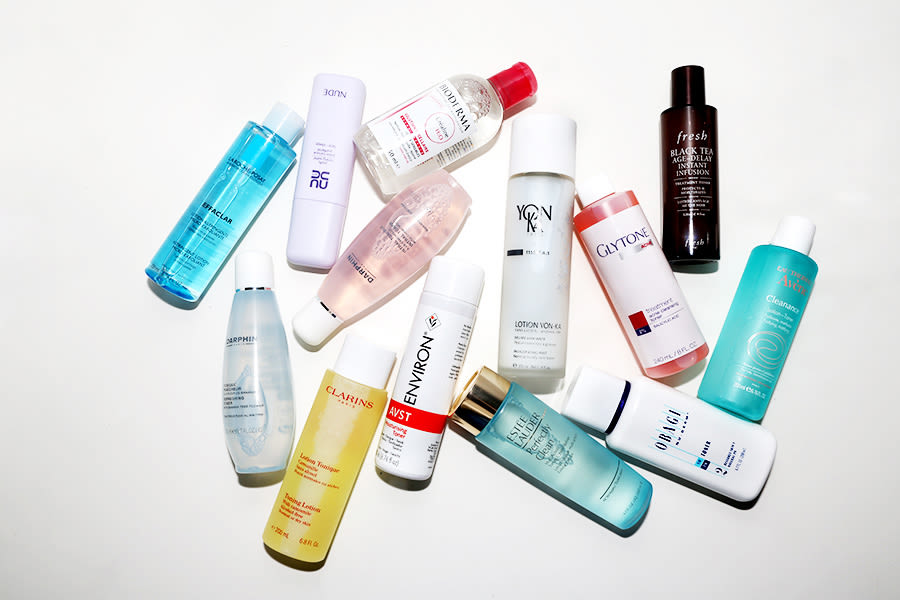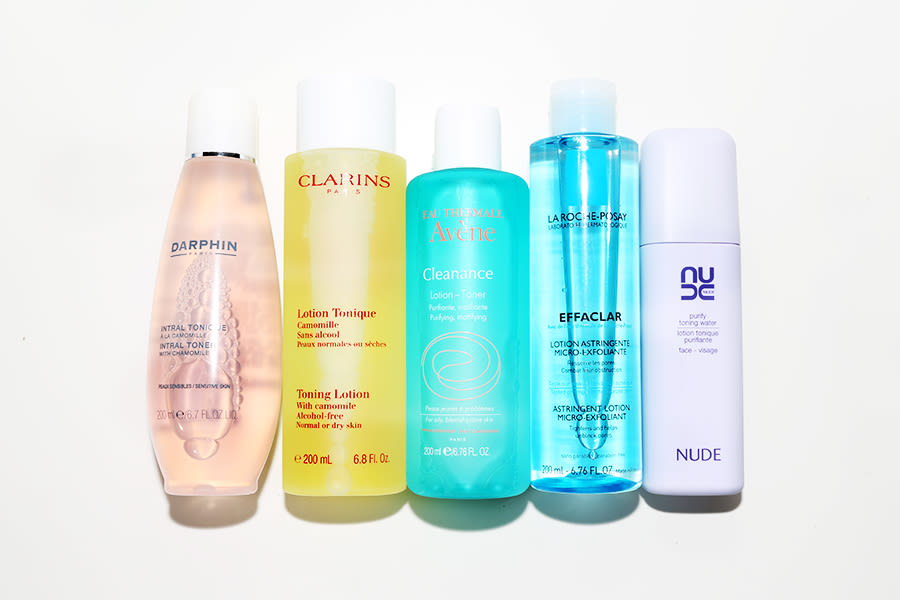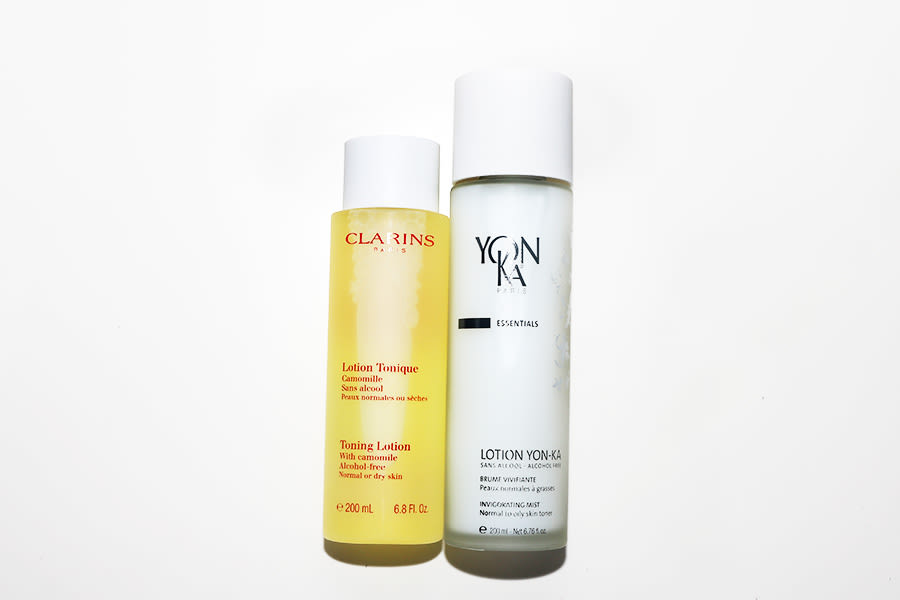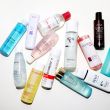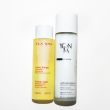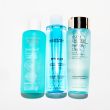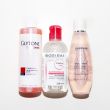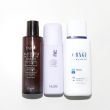I’ve been obediently applying the liquids and “lotions” otherwise known as toners since I started caring about skincare—simply because someone, somewhere, at some beauty counter/sleepover/dermatologist’s office told me I should. My life would have continued that way, too, if a curious friend hadn't asked a simple question: Why? And it was then that I realized I had about as much hearsay understanding of the product group as an elementary school student trying to explain childbirth. Even a quick scroll through our Top Shelves didn’t clear the fog much— Liya Kebede touts their deep-cleaning action; Sarah Rutson claims that toner helps boost her moisturizer; and makeup artist Siddhartha Bekers uses it to rebalance her skin after using a cleanser. And Beth Ditto refers to her toner as simply, “The best thing you’ll ever use in your life.”
But toners should not be among life’s great mysteries, I reasoned. So, overcoming the fear that seeing behind the curtain would reveal that we've been spending far too much time and hard-earned dough experimenting with tap water or worse, I reached out to Mila Moursi, the Los Angeles skincare specialist loved by Chloe Malle and behind Arianna Huffington's age-defying, pore-less skin, to reveal the truth about toners:
Why tone? “A toner's function is to complete the cleansing of your skin—removing the dust, pollution, and impurities that can still be lingering after washing with a cleanser, as cleansers usually contain ingredients such as oil, which can leave a film on your face.”
What's in a toner? “Most toners are water-based liquids composed of specific active ingredients including plant extracts and essential oils, tailored to address a variety of skin types. Mainly there are hydrating toners, calming and soothing toners, and astringent toners. We have a pH Balancing Toner and a Cleansing Toner.”
What's in a good toner? “I’d look for rosewater—for its hydrating, clarifying, and energizing properties—or chamomile, which is wonderful for calming and soothing the skin. Or both! Alcohol is usually found in astringent toners for oily skin. Their function is to dry out the skin and be especially anti-bacterial—but you don’t want to use those excessively because it will over-dry the skin. Alcohol isn't bad for your skin, but it just depends on the percentage.”
How should a toner be used? “After using a cleanser with warm water and a washcloth, splash your face with cold water. Then, saturating two cotton pads, use toner on your face, neck, and décolletage at night to complete the cleansing of the skin, and in the morning to remove sebum produced during the night and to balance your skin's pH. Finish by applying your treatment products and/or cream.”
Can you DIY**?** “Yes! For all skin types, I’d suggest a green-tea toner: make one cup of green tea, add half a teaspoon of honey. Mix well. After the mixture’s cooled, add three drops of jasmine essential oil and pour into an airtight bottle. There’s your toner! Just store it in a cool place. And for normal to oily skin types, I'd recommend an apple-cider vinegar toner: mix the juice of one lemon with one tablespoon of apple cider vinegar. Then, mix in 200 mL of mineral water. Again, pour into an airtight container and store it in a cool place. But, because lemon is photosensitive, only use this one at night.”
—Mackenzie Wagoner
Photos by Mathea Millman.
